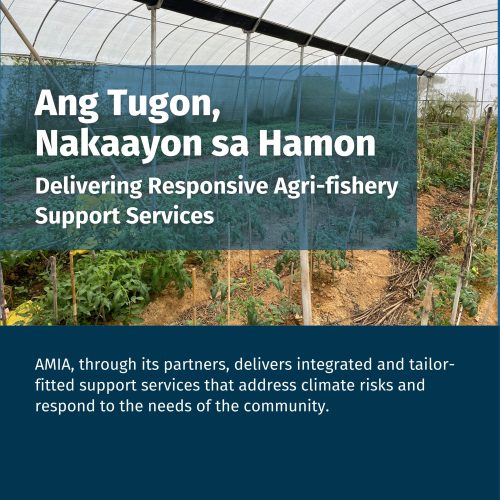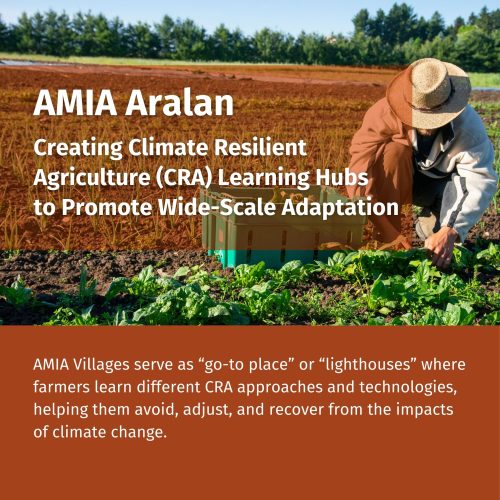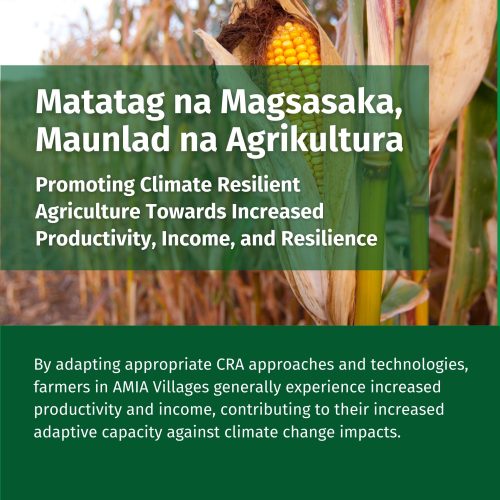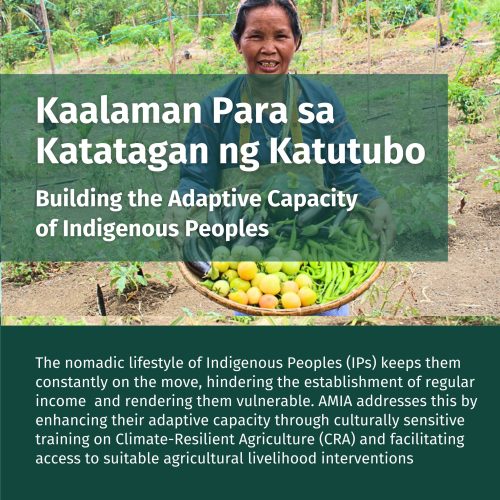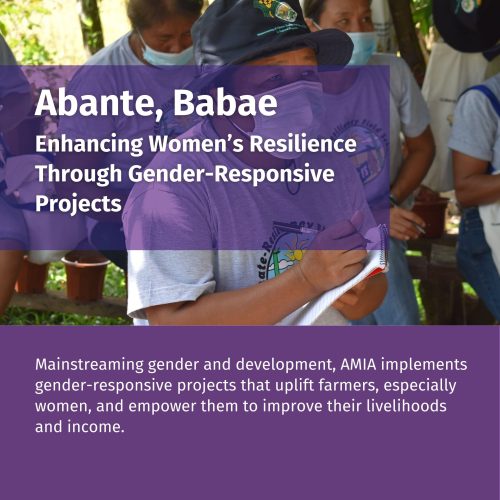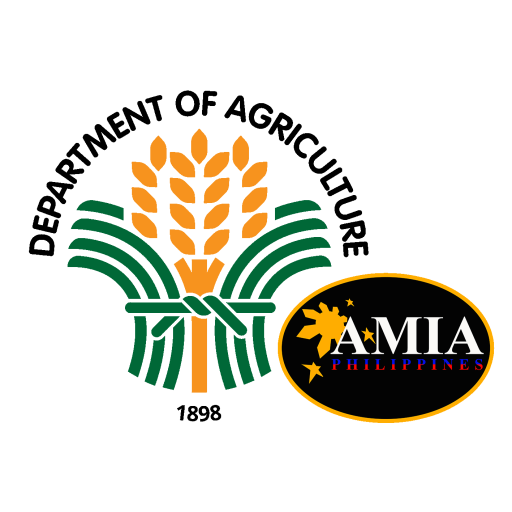The Adaptation and Mitigation Initiative in Agriculture (AMIA) is the flagship program of the Department of Agriculture (DA) dedicated to addressing the dual challenges of climate change: adaptation and mitigation.
OUR VISION
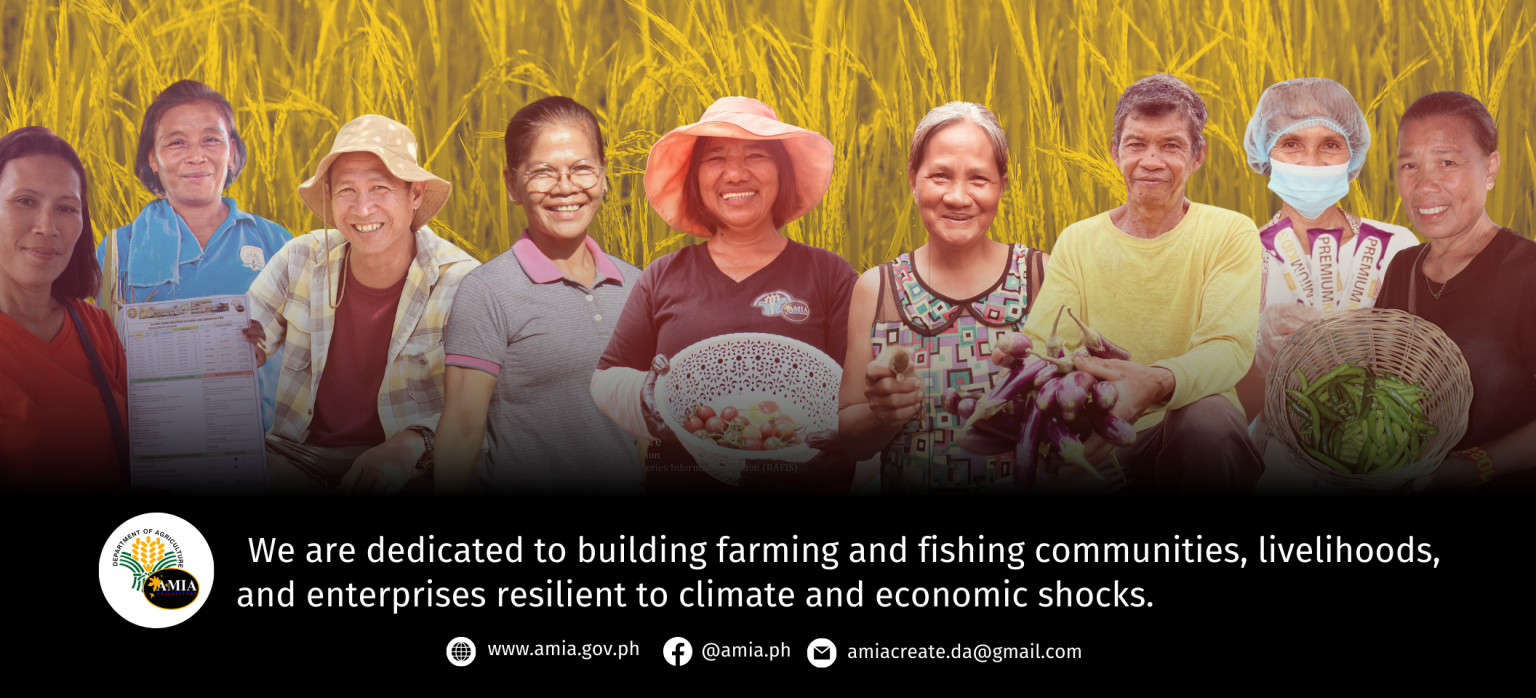
The overarching vision of the AMIA Program is a climate-resilient Philippine agriculture with empowered and prosperous farmers and fisherfolk. This vision is in harmony with the DA’s mantra “Para sa Masaganang Bagong Pilipinas.”
The realization of the vision involves building communities, livelihoods, and enterprises that are resilient to climate and economic shocks. This will be achieved through the promotion of climate resilient agriculture (CRA) and provision of highly responsive agriculture and fisheries support services that empower local communities to manage climate risks while pursuing sustainable livelihoods.
OUR PROBLEM
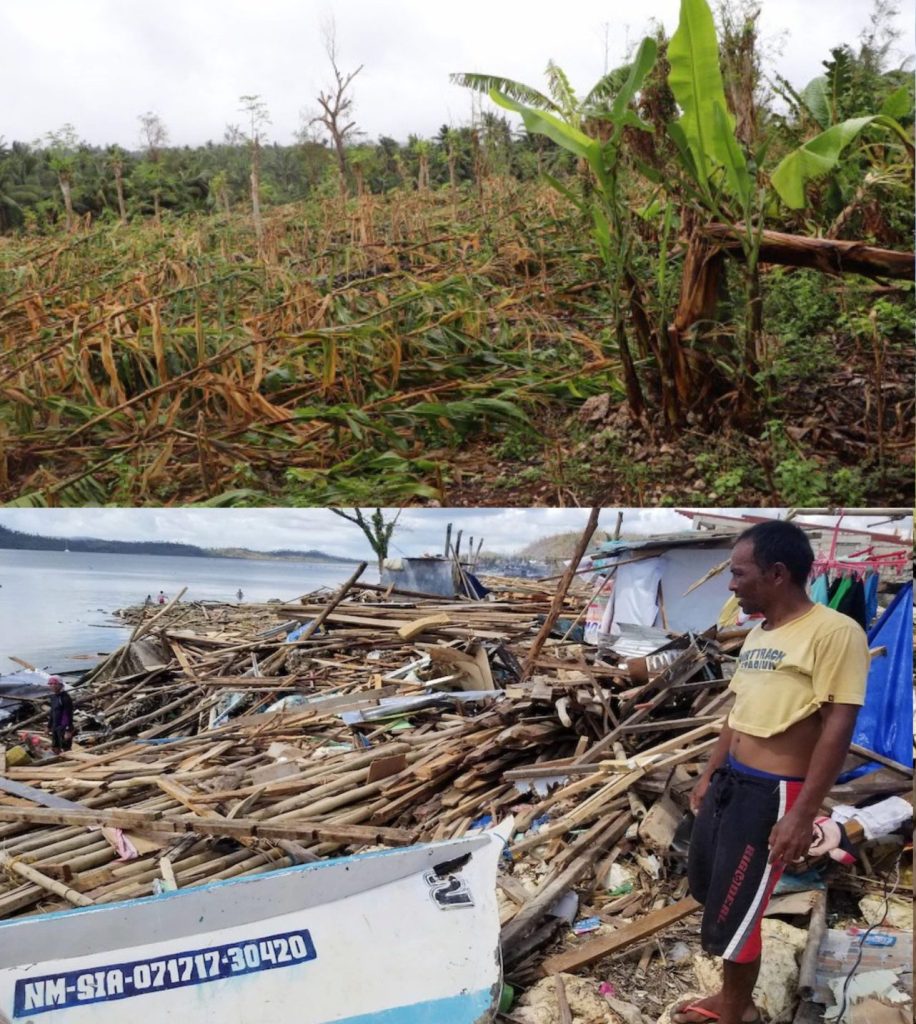
Climate change refers to long-term shifts in climate and weather patterns due to natural variability or as a result of human activities. Studies show that the majority of the consequences associated with climate change are detrimental.
With the Philippines’ archipelagic structure and geographical location, the country has been identified as one of the most vulnerable to the effects of climate change globally, resulting in food insecurity. This assertion is supported by PAGASA, which confirms the observed increase in temperature, sea level rise, reduced water availability for irrigation, occasional deaths of livestock, and the heightened frequency and strength of typhoons, particularly impacting the agricultural sector.
The protection of the Philippine food systems is a critical imperative. As an agricultural country, with 47% of the total land area amounting to 30 million hectares, the nation is currently in peril. The farmers will bear the brunt of these challenges, exacerbating their existing poverty incidence of 30% (PSA, 2021). Additional DA data from 2013 to 2022 highlights the imminent threats:
- Ninety-eight percent (98%) of production loss in the agriculture sector is due to climate-related hazards.
- Total production loss due to climate-related events is at ₱299,848,889,131.
- Rice is the most damaged crop by climate-related events with an accounted loss of 36% of the total production loss which amounted to approximately P108 billion, making the rice farmers the most vulnerable sector.
- Typhoons caused 88% of the total production damages and are then regarded as the most destructive climate-related hazard to agriculture; 9 typhoons per year that enter the county are destructive to the agriculture sector.
- Most super typhoons happen during the fourth quarter of the year.
- The highest losses and damages are experienced during the fourth quarter, coinciding with the occurrence of most super typhoons.
Data Source: DA FPOPD
OUR SOLUTION
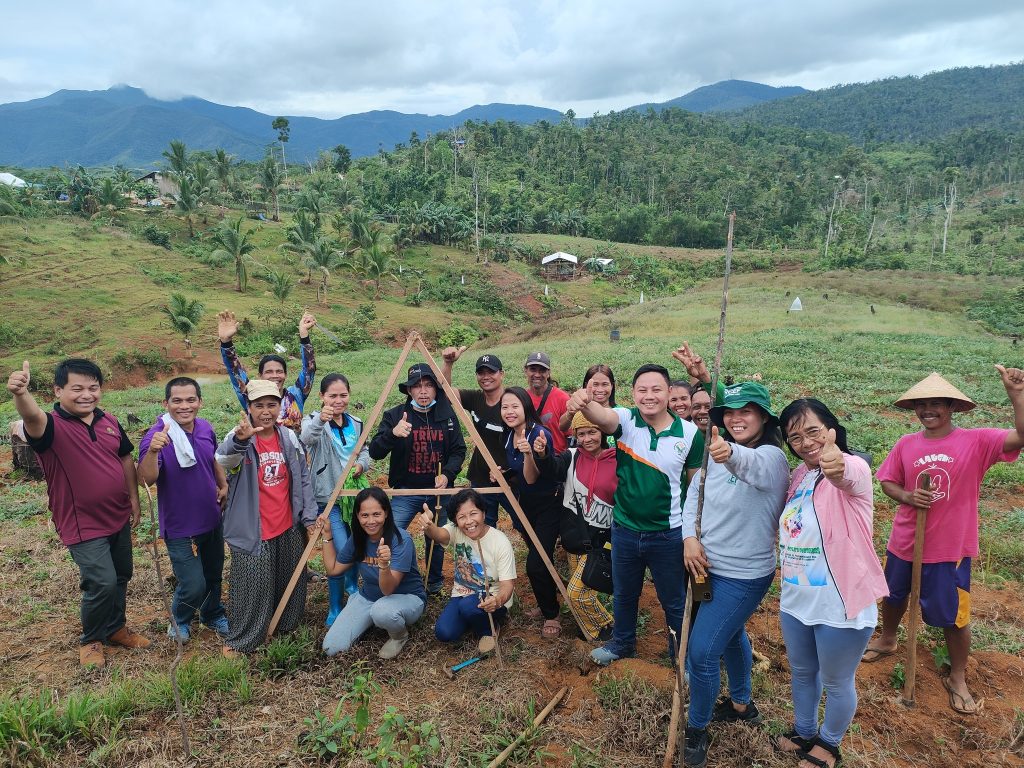
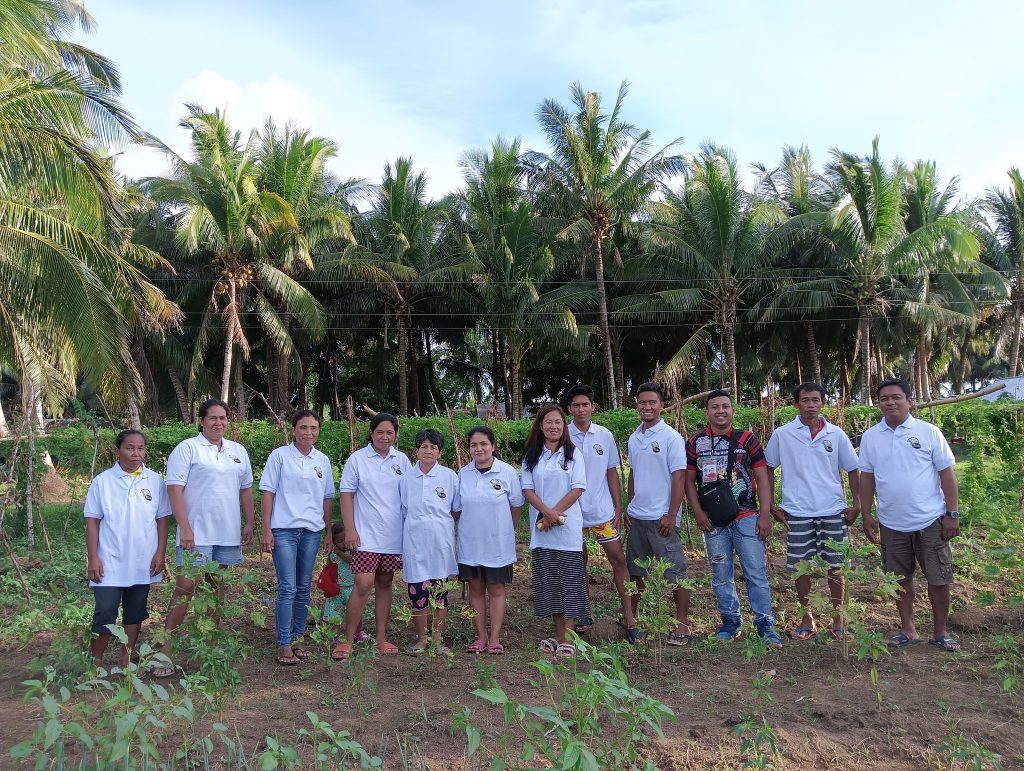
Addressing the effects of climate change is imperative to safeguard the agricultural sector, ensure food security, and mitigate the socio-economic impact on the vulnerable population, particularly farmers. Adaptation actions and mitigation initiatives must be done on a wide scale at the local level to avoid having farmers experience huge losses and damages.
Since 2013, the DA has been implementing the AMIA Program to respond to the challenges of climate change in agriculture and fishery communities, and to mainstream climate resiliency in the DA policies, plans, programs, and investments.
Managed by the DA Climate Resilient Agriculture Office, the AMIA Program is a rural development approach towards empowered and progressive communities in addressing the impacts of climate change for a climate-resilient Philippine agriculture.
It aims to build farming and fishing communities, livelihoods, and enterprises resilient to climate and economic shocks. This is done by promoting CRA practices and technologies and providing tailor-fitted and integrated support services that address location-specific climate risks through the AMIA Village Approach.
Working in partnership with national and local governments, civil society organizations, the academe, and the private sector, AMIA leverages CRA strategies towards ensuring food security, promoting economic growth, and achieving rural development.
The AMIA Village Approach
To build climate resilient communities effectively, CRAO has introduced the AMIA Village Approach. This innovative approach enables vulnerable agriculture and fishery communities to test available, mature, and scalable CRA technologies and practices relevant to their identified climate risks. It considers location-specific climate hazards, tailoring support services to match the needs of farmers with the interventions provided.
A key feature of the approach is its farmer-centric nature. Organized farmers are empowered to identify their location-specific climate risks, and plan and select the most suitable adaptation strategy to increase their yields despite the changing climate conditions.
Resilience is built with the adoption of climate adaptation measures and the delivery of integrated support services that are tailor-fitted to the needs of the community. Farmers are taught appropriate CRA strategies and farming techniques, including the use of climate- and weather-informed farming and fishing advisories under climate information services. They are also introduced to other forms of livelihood options applicable to their farms to diversify their farming and income, supported by various agricultural livelihood interventions, from inputs, poultry, livestock, farming tools, machineries and equipment, to infrastructure support.
Beneficiaries also receive various support services, including skills training along the value chain (from production to marketing) and social preparation and values formation. Assistance is provided for accessing credit and insurance, along with marketing support.
AMIA-CREATE
The AMIA Program goes beyond building climate-resilient communities. Under the AMIA Village Approach, AMIA Villages evolve from mere production units into climate-resilient business enterprises. The objective is to transform farmers into “agri-preneurs” by assisting them in developing commodities, exploring product development for marketing, and achieving higher incomes. This transformation into market-oriented CRA enterprises is facilitated through the AMIA-CREATE (Climate-Resilient Agri-Fishery Technology-based Enterprises) Framework.
Learn how the AMIA Program builds resilience through this photo gallery:



